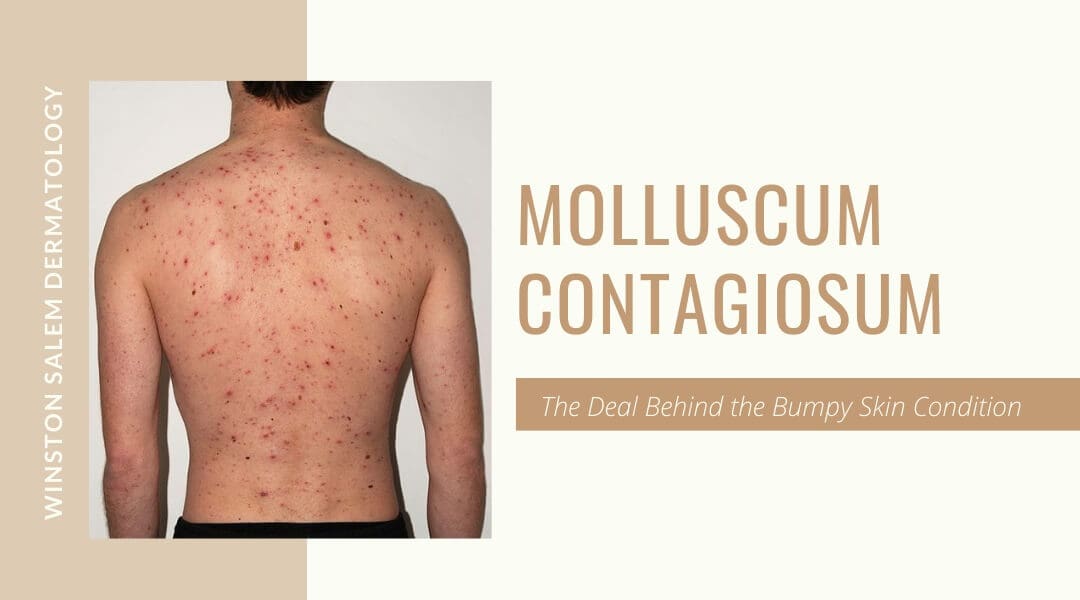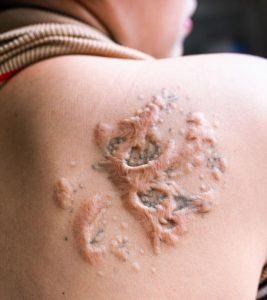Relieve tattoo rash symptoms by applying an unscented moisturizing cream and consulting your tattoo artist for advice. If rashes persist, consider using an over-the-counter steroid cream for topical relief.
Tattoos have become a popular form of self-expression, but sometimes they can come with unwanted side effects, such as tattoo rash. Dealing with tattoo rash can be a frustrating and uncomfortable experience, but there are ways to manage and alleviate the symptoms.
In this guide, we will explore the causes of tattoo rash, how to identify it, and the best treatment options available. Whether you’re experiencing mild itching or a more serious allergic reaction, this guide will provide the necessary information to effectively deal with tattoo rash and return to enjoying your ink.

Causes Of Tattoo Rash
Unscented moisturizing cream or lotion can help alleviate extreme itching caused by tattoo rash, and over-the-counter steroid cream can soothe inflammation if moisturizers don’t provide relief. Consulting with a tattoo artist and seeking medical attention may be necessary for severe reactions.
Allergic Reactions
Allergic reactions are one of the most common causes of tattoo rashes. When your immune system reacts to the tattoo ink, it can result in redness, swelling, itching, and rash formation. Not everyone will have an allergic reaction to tattoo ink, but certain pigments, especially red ink, can be more allergenic than others. If you develop a tattoo rash due to an allergic reaction, it is crucial to seek medical attention to determine the best course of treatment.
Infections
Infections can also lead to a tattoo rash. When proper hygiene practices are not followed during tattooing or aftercare, bacteria can enter the tattooed skin and cause an infection. Symptoms of an infected tattoo rash may include redness, pus, warmth, and pain. If you suspect a disease, it is vital to consult a healthcare professional for proper diagnosis and treatment. Ignoring an infection can lead to more severe complications and may even require surgical intervention.
Other Factors
Aside from allergic reactions and infections, other factors can contribute to the development of tattoo rash. These factors include:
- Poor-quality tattoo ink
- Improper aftercare
- Tight clothing or friction on the tattooed area
- Excessive exposure to sunlight or tanning beds
- Pre-existing skin conditions like eczema or psoriasis
It is essential to be aware of these potential causes and take appropriate precautions to minimize the risk of developing a tattoo rash. By choosing a reputable tattoo artist, following their aftercare instructions, and keeping the tattooed area clean and moisturized, you can significantly reduce the likelihood of experiencing a rash.

Identifying And Treating Tattoo Rash
If you’re experiencing a tattoo rash, moisturize with an unscented cream or lotion to alleviate itching. In more severe cases, consult a dermatologist, who may recommend a topical steroid cream for inflammation relief.
Signs And Symptoms
Tattoo rash, also known as dermatitis or an allergic reaction, can occur when the skin reacts negatively to the tattoo ink or aftercare products. Identifying the signs and symptoms of tattoo rash early on ensures proper treatment. Some common signs and symptoms of tattoo rash include:
- Redness and inflammation around the tattooed area
- Itchiness and irritation
- Bumps or hives
- Peeling or flaking skin
- Pain or discomfort
Immediate Actions
If you suspect you are experiencing a tattoo rash, taking immediate action to alleviate discomfort and prevent further complications is essential. Here are some quick actions you can take:
- Apply a cold compress to relieve pain and reduce swelling.
- Take an antihistamine like diphenhydramine to reduce itching and other allergy symptoms.
- Consult your tattoo artist about the reaction and ask for their guidance on what to do next.
Treatment Options
When it comes to treating tattoo rash, several options are available, depending on the severity of the reaction. Here are some standard treatment options:
- Moisturize the affected area: After consulting your tattoo artist, applying an unscented moisturizing cream or lotion can help relieve extreme itching in allergic reactions. If moisturizers do not help with the rashes, you can opt for an over-the-counter steroid cream for topical application to help soothe inflammation.
- Use topical ointments: A hydrocortisone or triamcinolone cream can relieve local inflammation and irritation.
- Seek dermatologist advice: If your tattoo rash persists or worsens, it is advisable to seek medical attention from a dermatologist who specializes in skin allergies. They can provide additional treatment options and prescribe stronger medications if necessary.
Prevention And Care For Tattoo Rash
Prevention and care are crucial when it comes to dealing with tattoo rash. It is essential to consult your tattoo artist, moisturize the affected area, and avoid common allergens to prevent and alleviate tattoo rash. By following these steps, you can ensure that your tattoo heals properly and remains vibrant for years.
Consulting Your Tattoo Artist
When experiencing a tattoo rash, the first step is to consult your tattoo artist. They are experts in the field and can provide valuable insight into the possible causes and appropriate remedies for your situation. Tattoo artists have extensive knowledge of tattoo aftercare and can guide you on preventing and managing tattoo rash effectively.
Moisturizing
Moisturizing the affected area is a critical aspect of caring for tattoo rash. Applying an unscented moisturizing cream or lotion can help relieve extreme itching caused by allergic reactions. Proper skin hydration promotes healing and prevents dryness, which can exacerbate rash symptoms. Additionally, moisturizing ensures that the tattooed skin remains supple and retains its vibrant colors.
Avoiding Common Allergens
Avoiding common allergens is essential to reducing the risk of developing a tattoo rash. Certain tattoo ink pigments or materials used during the tattooing process can trigger allergic reactions in some individuals. To prevent a rash, it is crucial to inform your tattoo artist about any known allergies beforehand. They can then use inks and materials less likely to cause an adverse reaction. Avoiding common allergens can minimize the chances of experiencing a tattoo rash.
In conclusion, prevention and care for tattoo rash are vital for maintaining a healthy and vibrant tattoo. Consulting your tattoo artist, moisturizing the affected area regularly, and avoiding common allergens are effective measures to prevent and manage tattoo rash. By following these guidelines, you can enjoy your tattoo without the discomfort and irritation of a rash.

Frequently Asked Questions For The Ultimate Guide To Dealing With Tattoo Rash
Should You Moisturize A Tattoo Rash?
Moisturizing a tattoo rash can help relieve itching, but consult your tattoo artist first. Use unscented moisturizing cream or lotion. If rashes persist, try over-the-counter steroid cream for inflammation. Seek medical attention if the reaction is severe.
How Long Does A Tattoo Allergy Rash Last?
A tattoo allergy rash typically lasts a few days to a few weeks before disappearing. If experiencing extreme itching, consult your tattoo artist and apply an unscented moisturizing cream or lotion. For persistent rashes, consider using an over-the-counter steroid cream to soothe inflammation.
What Can I Do If I’m Allergic To My Tattoo?
If you’re allergic to your tattoo, immediately seek medical care for a severe reaction. For a mild or moderate reaction, inform your tattoo artist and ask for advice. Applying an unscented moisturizing cream or lotion can relieve itching. If that doesn’t work, use an over-the-counter steroid cream to soothe inflammation.
How Do You Treat Dermatitis On A Tattoo?
To treat dermatitis on a tattoo, consult your tattoo artist. Try an unscented moisturizing cream or lotion for relief from itching. If rashes persist, consider using an over-the-counter steroid cream for inflammation. Seek immediate medical care for severe reactions. Communicate any responses to your tattoo artist.
Conclusion
If you’re dealing with a tattoo rash, there are several ways to alleviate the discomfort. Moisturizing your tattoo with an unscented cream can help relieve itching caused by allergic reactions. If moisturizers don’t work, use over-the-counter steroid creams to soothe inflammation.
If you suspect an allergic reaction, it’s essential to seek medical care immediately. Remember to communicate with your tattoo artist about any responses you may have. Keep these tips in mind to ensure a positive tattoo experience.
DIY hair oils are some of the most important ingredients to have in your beauty arsenal. They add shine, manage frizzy hair, and help improve your hair health.